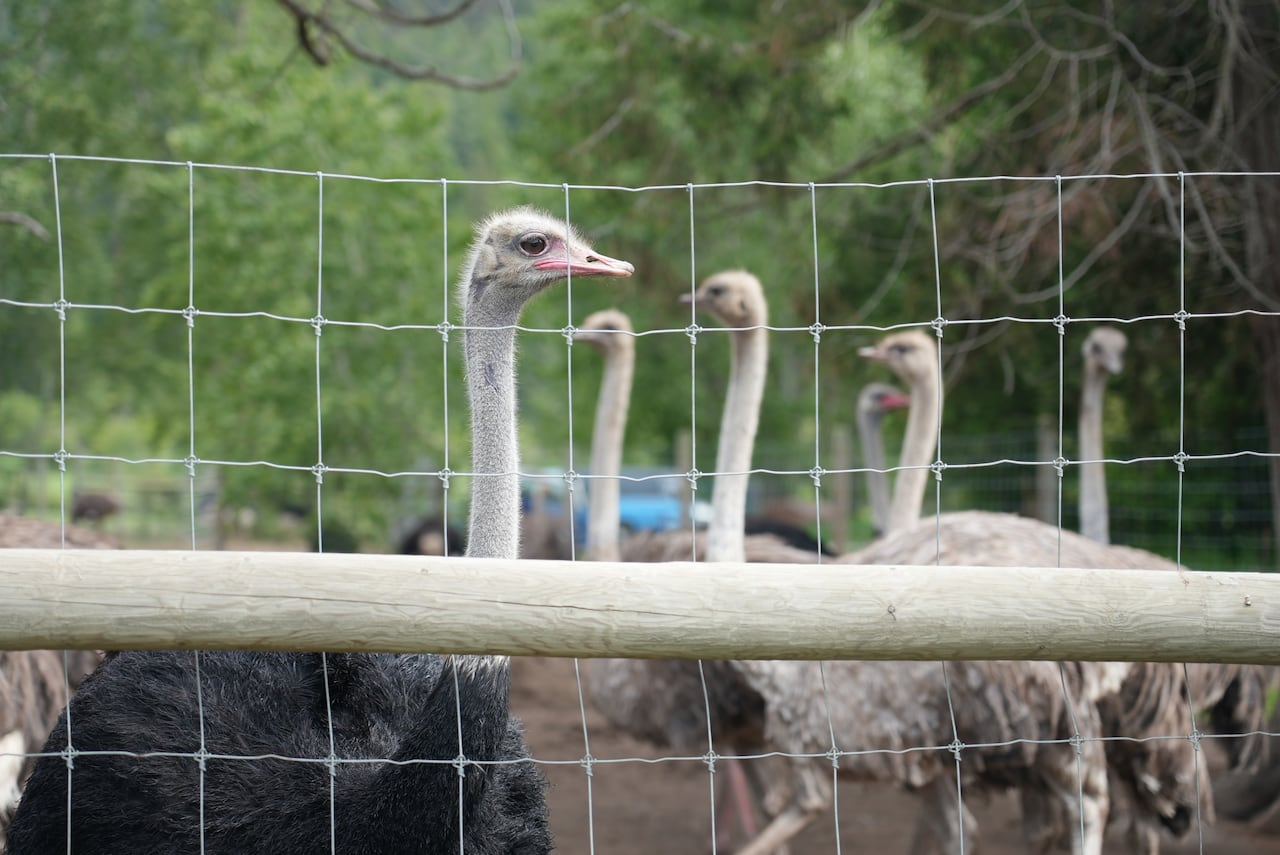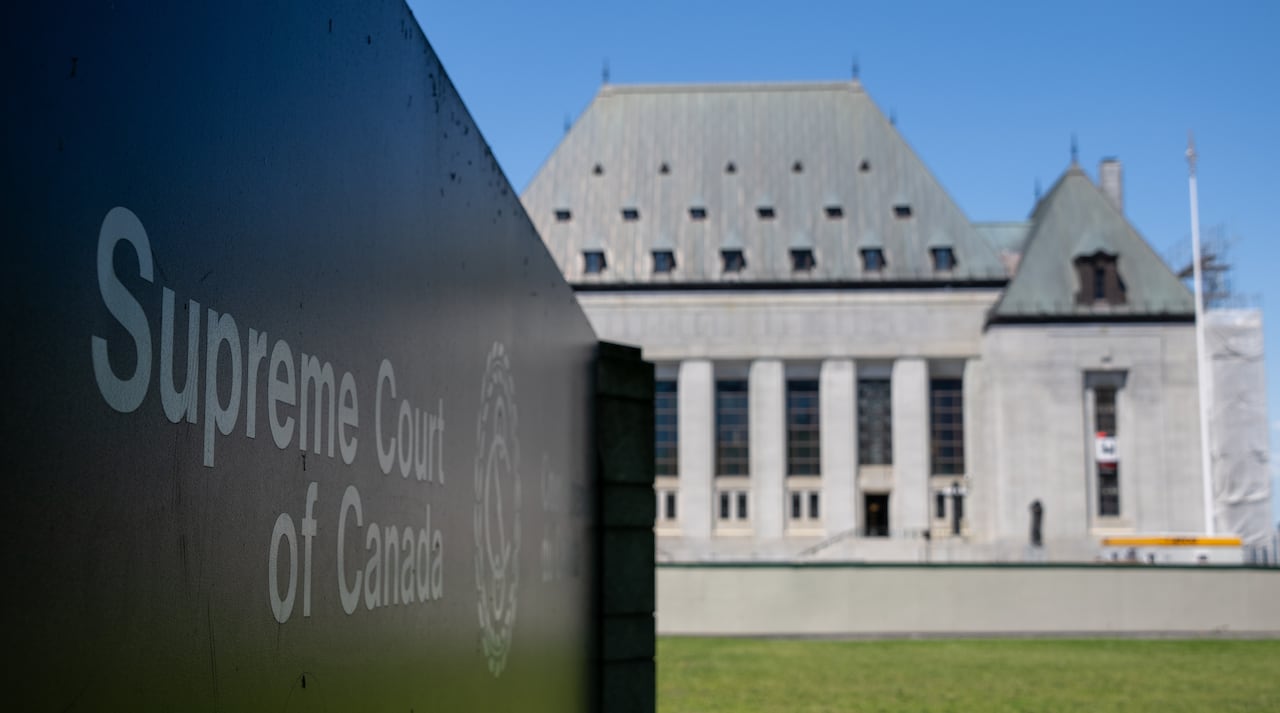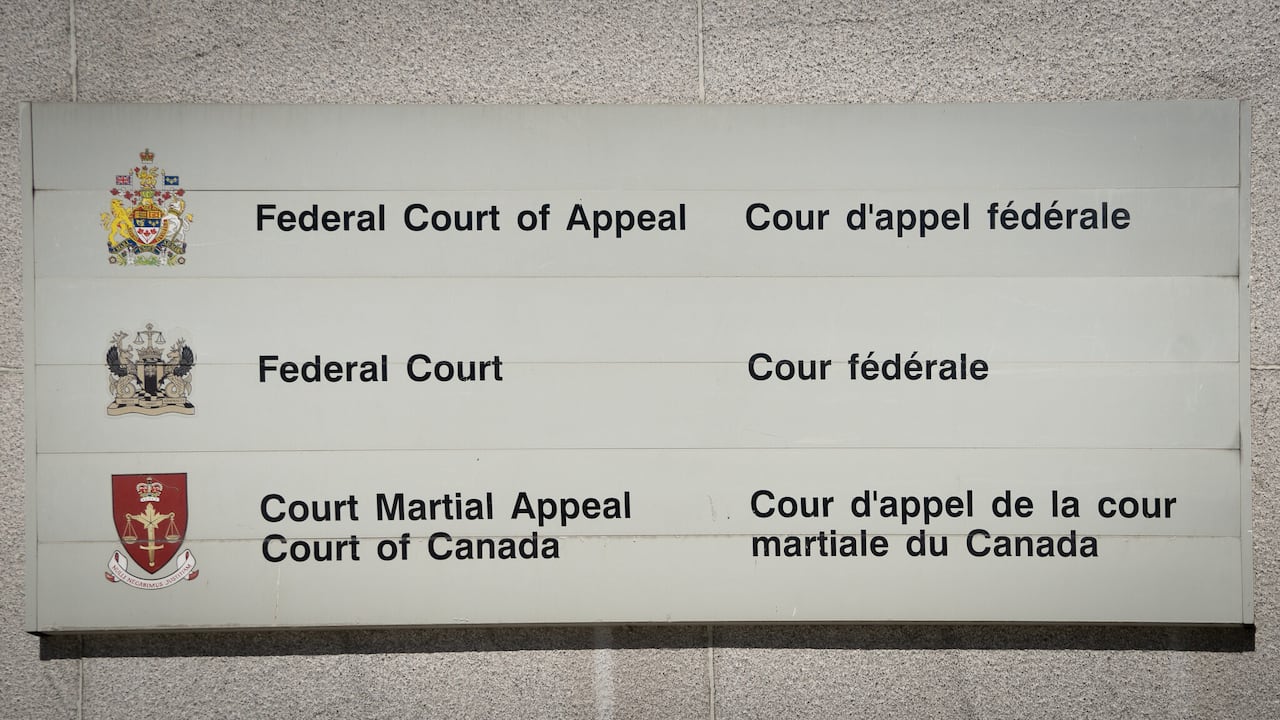In his battle for Canadian citizenship, Alexander Vavilov got an opportunity denied to the owners of B.C.’s Universal Ostrich Farms on Thursday — a chance to argue his case before Canada’s top court.
In the process, the son of Russian spies set a legal threshold for decision-making “reasonableness” that would doom the B.C. birds six years later.
That threshold — and Vavilov’s name — are plastered all over the lower court decisions the Supreme Court of Canada refused to reconsider this week, providing justification for the Canadian Food Inspection Agency’s (CFIA) decision to order a cull of hundreds of ostriches last December.
CBC’s Caroline Barghout reports from Edgewood, B.C., after the Supreme Court dismissed an appeal in a case related to a planned cull at the Universal Ostrich Farm.
‘Coherent and unified approach to judicial review’
Although the top court never gives reasons for dismissing a case, the Federal Court of Appeal made clear in September that the ostrich farm’s owners were unlikely to succeed before the Supreme Court of Canada with arguments that failed to raise “a serious or arguable issue.”
Vavilov was born in Toronto in 1994 to Russian spies posing as Canadians under assumed names — who would later be arrested in the U.S. and charged with espionage. Their story formed the basis for the hit TV series The Americans.

In 2014, the Canadian Registrar of Citizenship cancelled Vavilov’s citizenship — after concluding that the rule granting Canadian citizenship to individuals born in Canada exempted children of diplomats, and other representatives or employees for foreign governments.
He challenged the decision in Federal Court, sparking a fight with Canada’s Minister of Citizenship and Immigration that continued all the way to the Supreme Court of Canada.
On the surface, those facts may appear to be a million miles removed from the plight of more than 300 ostriches on a farm in Edgewood, B.C., facing destruction because of the threat of avian flu.
But the issue underlying both cases is the role of the courts in reviewing discretionary policy decisions.

“The Supreme Court’s objective, in [Vavilov’s case], was to develop a coherent and unified approach to judicial review that applies to a spectrum of administrative decision-makers,” Federal Appeal Court Judge Gerald Heckman wrote last September.
“This includes the CFIA decisions reviewed by the Court.”
‘Experts in law, not in public health’
The CFIA ordered a cull of the birds on Dec. 31, 2024 — within 41 minutes of receiving positive avian flu results from carcasses of two of some 25 to 30 ostriches which had died over the previous three weeks at Universal Ostrich Farm.
Universal Ostrich’s owners applied for an exemption from the CFIA’s so-called “stamping-out” policy — which aims to counteract the spread of viruses with the potential to harm Canada’s animal health, human health and international trade through “swift elimination of infected populations.”

The agency rejected the exemption application, which was grounded in the birds’ allegedly “rare and valuable genetics” and the farm’s claims that affected ostriches had been separated from the flock.
Universal Ostrich’s owners asked the Federal Court for a judicial review of both the original notice to dispose of the birds and the later refusal to exempt them from the cull.
From there, the case made its way to the Federal Court of Appeal and the Supreme Court of Canada.

The standard set by Vavilov’s case asks whether a decision “exhibits justification, transparency and intelligibility and is justified in relation to the relevant factual and legal constraints.”
The first Federal Court decision on the ostriches cites that standard — stressing that judges “need to stay out of scientific debates and focus on whether the decision-makers used their expertise to make reasonable and procedurally fair decisions.”
“Judges are experts in law, not in public health, virology, epidemiology, or veterinary medicine,” Judge Russel Zinn wrote in the first decision ruling against the farm’s owners.
“Reasonableness asks whether the CFIA’s explanation of its decisions tells a compelling story of how it reached them … Procedural fairness is about the decision-making process itself, not the outcome.”
Not the court’s job to argue science
Debates over animal rights, the lethality of the disease and claims the surviving ostriches might hold a key to fighting avian flu attracted significant attention — but the arguments outside the court were different to the ones taking place inside.
Zinn said it wasn’t his job to decide “whose science on the virus in question is ‘better.'”

“To decide a winner in this contest will cause this Court to commit two cardinal sins in reasonableness review,” he wrote.
“First, it will prompt this Court to reach beyond the legitimate scope of reasonableness review of a broad policy decision. Second, it will effectively make this Court an academy of science and an arbiter of truth in immunology and animal and public health.”
To that end, Zinn cautioned against arguments purporting to favour “common sense” decision making.
“Common sense in decision-making only becomes truly ‘common’ and ‘sensible’ when ordinary individuals are familiar with or routinely exposed to the type of decision being made,” he wrote.
“That is not the case here. The complex, science-driven, and high-stakes decisions involved in managing the spread of avian influenza fall well outside the realm of commonly shared lived experience.”
‘Judges don’t have hearts of stone’
In Vavilov’s case, the Supreme Court of Canada found the decision to strip him of his citizenship unreasonable.
The court said the decision-maker in that situation failed to justify her interpretation of a law that did clearly not apply to the children of foreigners who have not been granted diplomatic immunity — even if they were spies.
But the reasonableness standard went the other way for the ostrich farmers, who are regulated by an agency mandated with ensuring the health of animals and humans and “safeguarding the agricultural industry on which Canadians depend for their livelihood and food security.”
The Supreme Court of Canada apparently saw nothing to suggest the decision to order a cull — or any of the decisions by the judges who later reviewed the CFIA’s ruling — were unreasonable.
“Judges don’t have hearts of stone. Like all people, we understand the emotional bonds that grow between people and the animals they care for,” Heckman wrote.
“Both levels of court determined that the CFIA had reasonably exercised its authority in the circumstances of this case and that its policy was lawful.”






